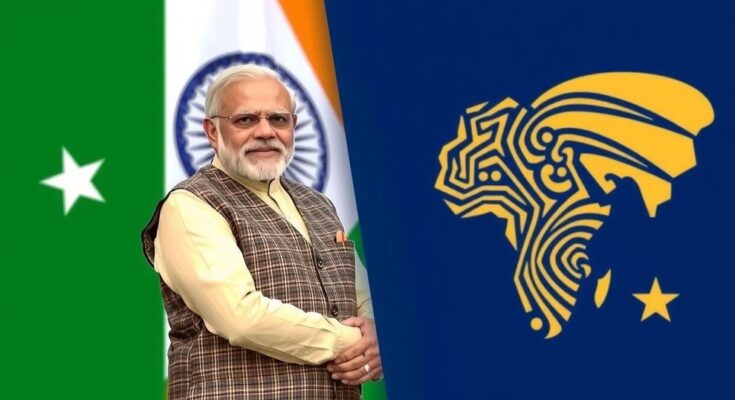The first visit by an Indian Prime Minister to Nigeria in 17 years emphasizes crucial security and investment partnership opportunities. Historical ties span over 60 years, with significant Indian contributions in education and healthcare. With substantial investments from Indian firms, the renewed focus reflects both nations’ shared objectives in fostering long-term economic benefits.
India’s Prime Minister’s recent visit to Nigeria marks the first such high-level engagement between the two countries in 17 years, following the previous visit by Manmohan Singh in October 2007, which initiated a “Strategic Partnership”. Given that India is the world’s largest democracy and Nigeria the largest in Africa, the two nations naturally align as significant partners, exhibiting large and diverse populations with rich cultural heritages. Since establishing diplomatic relations over 60 years ago, with India’s Diplomatic House opened in Lagos in 1958, bilateral contacts have flourished. The historical ties encompass extensive collaboration in education, healthcare, and defense. Indian teachers and healthcare professionals have significantly contributed to Nigeria’s development, particularly from the 1960s to the 1980s. The current Indian expatriate community in Nigeria, estimated at 60,000, reinforces the depth of this partnership. Moreover, more than 200 Indian companies investing approximately $27 billion across vital manufacturing sectors stand as the second-largest employers in Nigeria after the federal government. India has provided extensive development assistance, including concessional loans and training initiatives under the Indian Technical and Economic Cooperation (ITEC) program, benefitting thousands of Nigerians. Additional scholarship programs facilitated by India further demonstrate the commitment to fostering educational opportunities for Nigerian students. This visit heralds a renewed focus on security cooperation and investment opportunities, vital for both nations in navigating contemporary challenges and enhancing bilateral trade. The strengthening of these ties is expected to create long-term economic benefits and stability in the region.
The bilateral relationship between India and Nigeria represents a significant aspect of international diplomacy, particularly given the historical context of their engagements. India’s involvement in Nigeria dates back to before Nigeria’s independence, influencing various sectors through educational initiatives and medical assistance. The establishment of a large Indian expatriate population in Nigeria signifies ongoing mutual interests, while India’s substantial economic investments indicate a commitment to Nigeria’s development trajectory. Acknowledging the shared democratic values and diverse societal compositions enhances the understanding of the significance of this partnership in current geopolitical terms, especially considering both countries’ roles in their respective regions.
In conclusion, the recent visit of India’s Prime Minister to Nigeria signifies a pivotal moment in strengthening the long-standing relationship between the two nations. This engagement not only aims to enhance security and investment ties but also underscores a commitment to collaborative development through historical, economic, and educational ties. The potential for growth in bilateral relations appears promising, fostering closer cooperation in addressing common challenges and advancing mutual interests.
Original Source: m.economictimes.com




